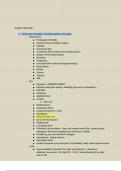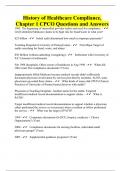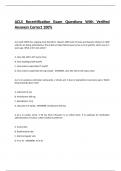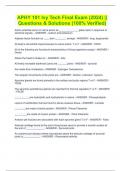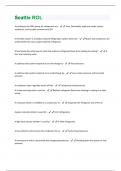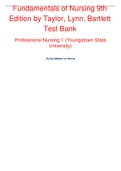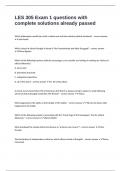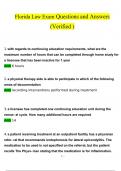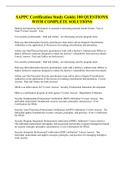Exam (elaborations)
NUR 265 EXAM 2 With Correct Answers Latest Update 100% GUARANTEED PASS
- Course
- Institution
EXAM 2 NUR 265 ● Pulmonary embolism: clot that travels to the lungs ○ Risk factors ■ Prolonged immobility ■ Central venous catheter surgery ■ Obesity ■ Advancing age ■ Conditions that increase blood clotting (DIC) ■ Distort of thromboembolism ■ Smoking ■ Pregnancy N...
[Show more]
